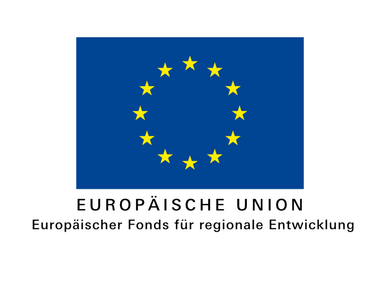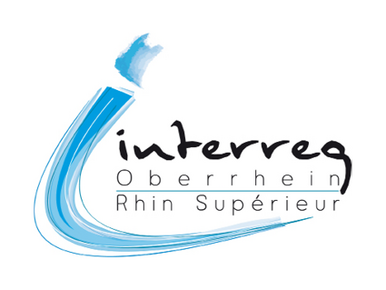Trinational research initiative: 3D printing materials for resorbable bone implants
The TriMaBone project involves project partners from the tri-national area of the Upper Rhine region and is intended to lay the foundations for establishing a promising key technology in the region with the involvement of colleges, universities and companies.
The aim of the project is to design materials and manufacturing techniques that enable the use of additive manufacturing/ 3D printing in the medical field of bone reconstruction and meet the increasing social demand for personalized medicine. The integration of additive manufacturing measures into medical technology manufacturing processes makes it possible to meet the high demands placed on individualized medical products and to make treatment more gentle for the patient. The ageing population in particular and the resulting increase in health problems, such as limited self-healing or osteoporosis, make it necessary to develop new therapeutic approaches so that patients can be offered the best possible medical treatment.
The project aims to develop chitosan for 3D printing of non-load-bearing, resorbable bone implants and to test its suitability for medical products. To this end, the project partners bring complementary expertise in the areas of chemical modification and functionalization of the starting material, material characterization, implementation and development of additive manufacturing processes and biocompatibility analysis.
Furtwangen University (Project partners)
At the Faculty of Medical and Life Sciences at Furtwangen University, biocompatibility analyses are being carried out on the designed materials under the direction of Professor Dr. Hans-Peter Deigner. To this end, the new materials and commercially available materials are being tested and compared for their medical compatibility using cell culture methods. The aim of these analyses is to avoid complications in future medical products and to ensure the best possible compatibility for patients. In order to assess the biocompatibility of the materials, they are examined for cytotoxic properties, induction of tissue integration and inflammatory or allergic reactions in cultivation tests with cell lines and mesenchymal stem cells. With the help of these tests, a general assessment of the biocompatibility of the newly developed materials will be made, which can be used as a basis for further clinical studies.
University of Applied Sciences Northwestern Switzerland
The University of Applied Sciences Northwestern Switzerland (FHNW) is represented in the TriMaBone project by the Institute of Medical Engineering and Medical Informatics (IM²) in the School of Life Sciences. The experts at IM² are active in the field of additively manufactured implants and operate at the interface between industry, medicine and science. The research focus is on patient-specific solutions and surgical assistance systems. One focus programme deals with the design and additive manufacturing of implants made of titanium, titanium alloys and bioresorbable materials. Daniel Seiler is in charge of the project at the FHNW.
The TriMaBone project benefits from the production facilities and process expertise at IM². A wide range of materials can be processed using state-of-the-art 3D printing technologies (3D multi-jet printing, multi-purpose layer build-up system or electron beam cross-linking). In addition, a range of material analysis systems are available for the characterisation of 3D-manufactured components.
University of Haute-Alsace
University of Koblenz-Landau
In the project, the University of Koblenz-Landau is responsible for the chemical characterization of the developed chitosan and the investigations into the processing properties and applicability of the materials.
It is also carrying out the modification of the chitosan and producing the granulate for use in 3D printers. Professor Dr. Silke Rathgeber from the Institute of Integrated Natural Sciences - Department of Physics is supervising and leading the project work.
Advisory Board
- CleanControlling Medical GmbH & Co. KG
- BIOPRO Baden-Württemberg GmbH
- University Medical Center Mainz
- HERZ GmbH
- CIRTES SA
- University Hospital Basel
- REGENHU LTD
- COMET AG ebeam Technologies
- SwissKH Sàrl
- SmartDyeLivery GmbH
- Ultimaker B.V.
- Ministry of Science, Research and the Arts Baden-Württemberg
- BioLAGO e.V. - The Health Network
- Ministry of Science, Further Education and Culture Rhineland-Palatinate
- IHK Rhineland-Palatinate Working Group
- Chambre de commerce et d'industrie Alsace
- Grand Est Region
- Regio Basiliensis
- AM Network c/o BWI AG
- Grand Council of the Canton of Basel-Stadt
- Canton of Basel-Landschaft
- Canton of Jura
- Swiss Confederation (NRP)
Funding
Co-financed by the European Regional Development Fund (ERDF), Ref: 5115/3.17.
More information on the Interreg website.

